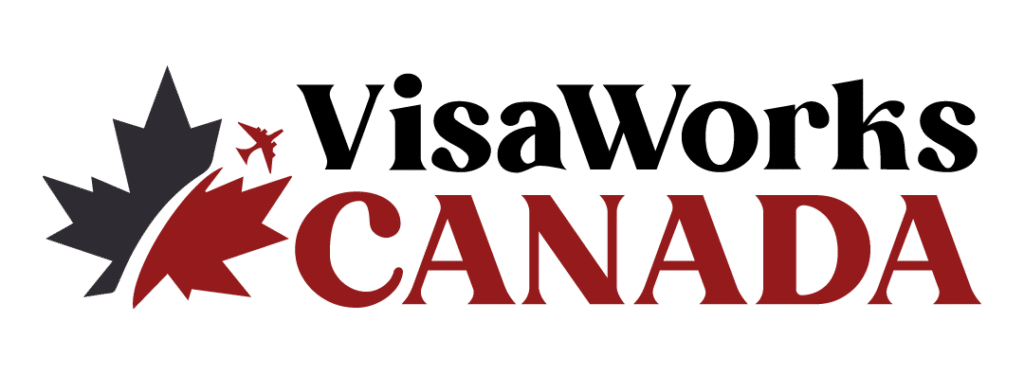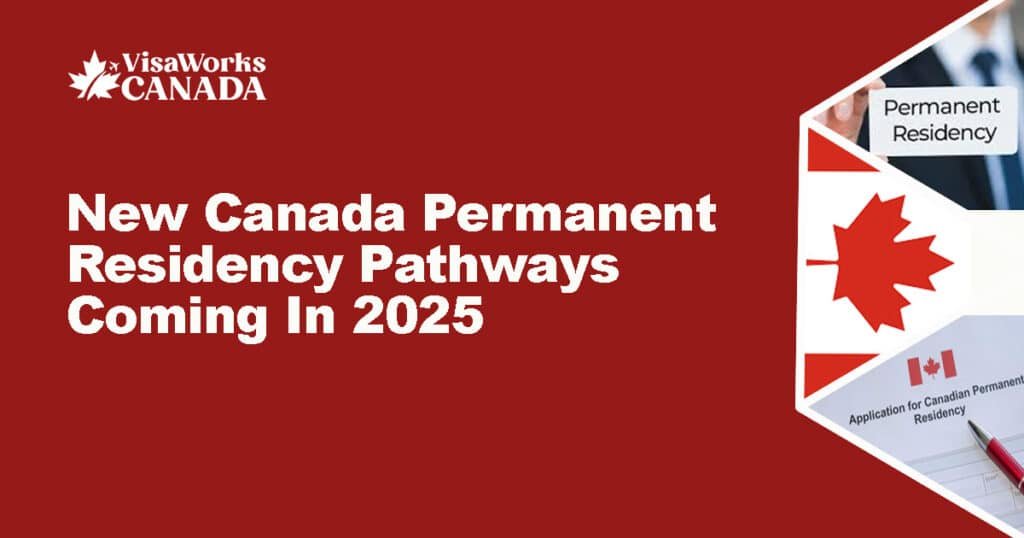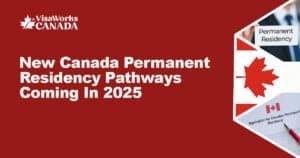Canada is poised to introduce four new permanent residency (PR) pathways in 2025, despite a reduction in the annual immigration targets. These innovative programs aim to address workforce shortages, foster linguistic diversity, and cater to caregiving and economic demands across the country. Representing a transformative shift in immigration policy, these pathways reflect Canada’s commitment to community-centric frameworks.
Table of Contents
ToggleThis article delves into the four pathways—two enhanced caregiver pilot programs and two community-focused immigration initiatives—and the promising opportunities they present for potential immigrants in 2025.
1. Enhanced Caregiver Pilot Programs
The enhanced caregiver pilots are set to revolutionize how home care workers attain permanent residency, offering a streamlined process upon arrival in Canada. These programs address the surging need for professional caregiving services while ensuring a smooth PR pathway for skilled individuals.
Key Features
- Permanent Residency on Arrival: Immediate PR status for caregivers arriving in Canada.
- Employment Flexibility: Opportunity to work with employers offering temporary or part-time care for semi-independent individuals or those recovering from health challenges.
- Job Security: Seamless integration into stable caregiving roles with reputable employers.
Eligibility Criteria
Candidates must meet the following requirements:
- Language Proficiency: Minimum Canadian Language Benchmarks (CLB) score of 4.
- Educational Qualification: Equivalent to a Canadian high school diploma.
- Work Experience: Relevant and recent caregiving experience.
- Job Offer: Full-time employment in Canada’s home care sector.
By reducing barriers and enhancing accessibility, these pilots aim to fortify Canada’s caregiving workforce and provide a viable path for immigrants to build a stable future.
2. Rural Community Immigration Pilot
Targeting labour shortages in underserved regions, the Rural Community Immigration Pilot is modeled after the successful Rural and Northern Immigration Pilot (RNIP). This program fosters collaboration between rural communities and newcomers to ensure sustainable workforce integration.
Program Objectives
- Facilitate pathways to PR for skilled workers.
- Support local businesses in meeting workforce needs.
- Encourage long-term settlement in rural areas through community engagement.
The initiative empowers rural communities to identify and attract workers who can contribute to local development, addressing critical gaps in industries while fostering regional growth.
Explore Our Services
3. Francophone Community Immigration Pilot
Promoting French linguistic and cultural diversity beyond Quebec, the Francophone Community Immigration Pilot is integral to Canada’s broader Francophone Immigration Policy.
Program Goals
- Boost the economic vitality of Francophone communities.
- Increase the demographic presence of French-speaking populations in minority regions.
- Preserve cultural heritage and foster bilingualism.
Key Benefits
- Support for economic development through skilled worker attraction.
- Preservation of Francophone cultural identity.
- Strengthening Canada’s multicultural and bilingual ethos.
This program underscores Canada’s commitment to promoting linguistic inclusivity while addressing demographic challenges in Francophone communities.
Anticipated Launch and Challenges
The launch of these pilots, initially slated for late 2024, is now anticipated in 2025. A reduction in economic immigration targets, from 14,750 to 10,920 under Canada’s Immigration Levels Plan, has influenced the timeline.
While exact eligibility details are pending, potential applicants are encouraged to:
- Enhance their language proficiency to meet program requirements.
- Gain relevant work experience.
- Explore rural and Francophone community opportunities.
These new pathways reflect Canada’s evolving immigration landscape, balancing demographic needs with economic growth. Aspiring immigrants should stay informed through updates from Immigration, Refugees, and Citizenship Canada (IRCC) to maximize these opportunities.








